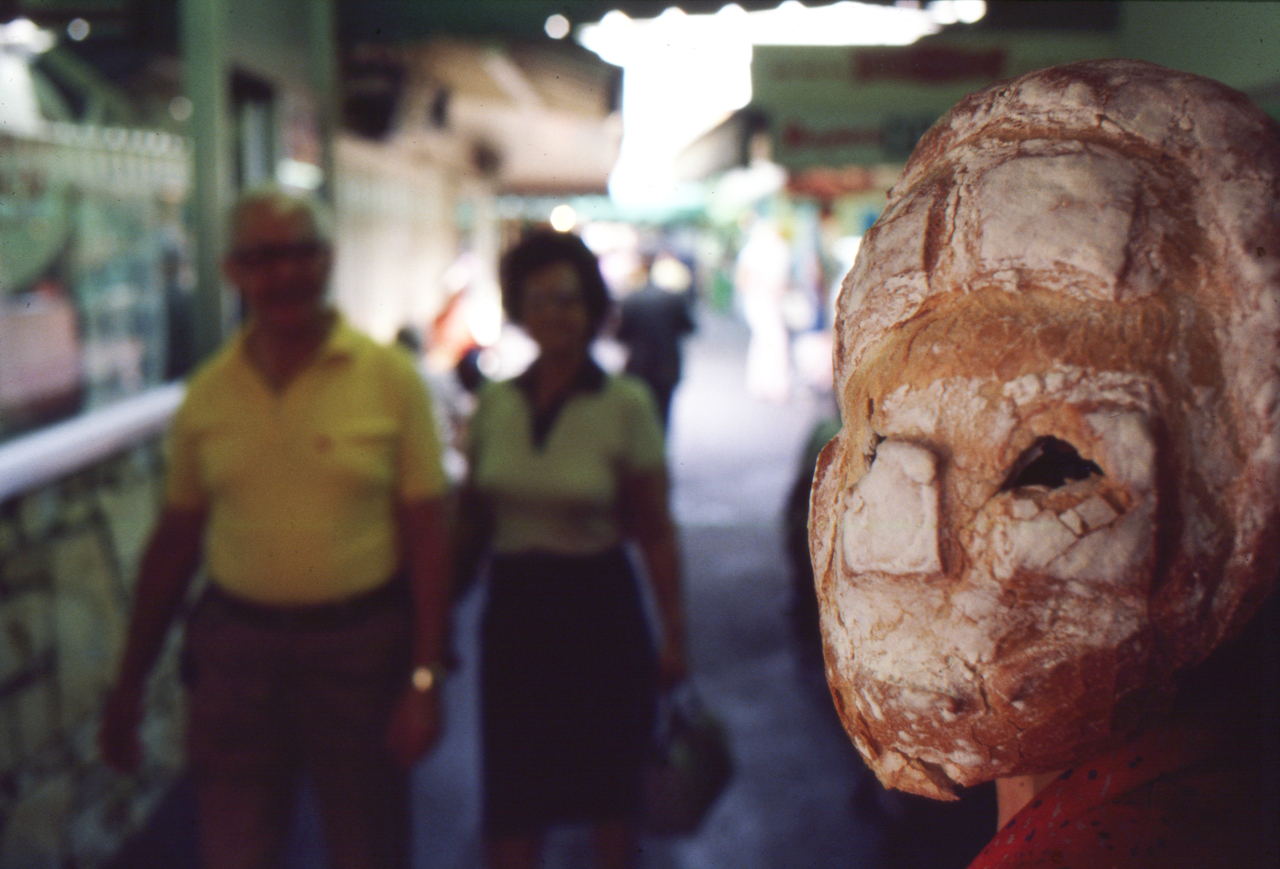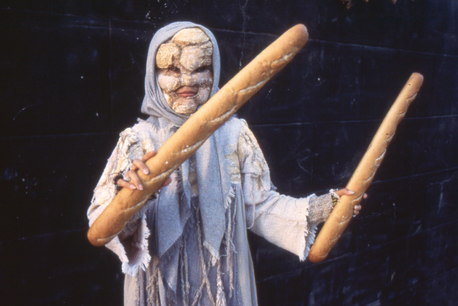Written by:
Edited by:
Share article:
A story of bread
Anna Homler is a vocal, visual and performance artist based in Los Angeles. She has performed and exhibited her work in venues around the world. With a sensibility that is both ancient and post-modern, Homler sings in an improvised melodic language. Her work explores alternative means of communication and the poetics of ordinary things. She creates perceptual interventions by using language as music and objects as instruments.
Anna Homler performed during the CTM festival in Berlin alongside Steven Warwick (better known as Heatsick) and Natsuko Kono.
We met Anna and Matt Werth from RVNG Intl. in the lobby of a nice hotel in Berlin, in the last evening of the festival. Here's the result of our roundtable conversation.
Anna: Steve Moshier. I heard his music, he had a group called Cartesian Reunion Memorial Orchestra in the 80's, and it was like music I've never heard before. It was minimal, it was dangerous and it was beautiful at the same time. He's a really intense guy; one of a kind. I approached him, because I had all these cassettes and these songs that I was singing and I didn't really know what to do with them. He went through them all and he took the ones that were the least song like – landscapes - he worked with those and he arranged them. So, for instance 'Ee Chê' wasn't really 'Ee Chê'. He found the word 'Ee Chê' and he repeated it. I was thinking today about it and it was because of this arrangement that I had to learn the song over, because there never was a chorus. He emphasized it. and then ''Yesh' Te'' is 'Ee Chê' backwards; I had to learn that. I had to swallow my songs.
So you've actually kind of invented a new language.
Anna: Well, it bubbled up. It found me.
Can you tell us something about the way you relate to your voice in your art?
Anna: It happened organically, so I didn't think, I just trusted it. I just followed it. But you know my art, Matt. What would you say? I’m still in it. It's like I'm a fish and this is my ocean. And my ocean has a pharmacy, it has a whale, it has all these characters and things, but it's too close for me. I have to jump out of the aquarium and be able to say ''oh, it looks like this''. It's just my world. But what is it looking like to you, Matt?
Matt: It's fascinating, segmented into these different characters, environments and then they all interweave at various points. Breadwoman hasn't appeared in the past six months; she has been around for years.
Anna: She was just sleeping.
What inspired the emergence of Breadwoman as a character?
Anna: I think that I'm interested in human psychology, in the unconscious. I'm interested in the things not in front of you, but over here, you know? Like if you had eyes in the back of your head, what would you see? It’s like those kind of curious things that don't make sense... I'm really influenced a lot by film. I really love film. Especially these English filmmakers from the ‘50s, when I was growing up. All these movies had a lot of passion, loss and beauty. I really love beauty. Our world tries to destroy beauty, it's not trusted, because the beauty we see is manufactured, it’s corporate beauty. I just go for what I'm attracted to and then I find out why, after the fact. I wanted to wear bread and because I was a performance artist, I had permission. I could wear bread. I wanted to go out in the world with my face made of bread.
Why bread?
Anna: Because bread looks like flesh and it's very mysterious. At that time I was working in a book store that was close to an elder home, so you would see all the time, in Westwood Village, these old ladies crossing the street and I would look at them and their skin looked like bread. Sometimes I'd look at bread and I would see faces. So... I just saw it.





